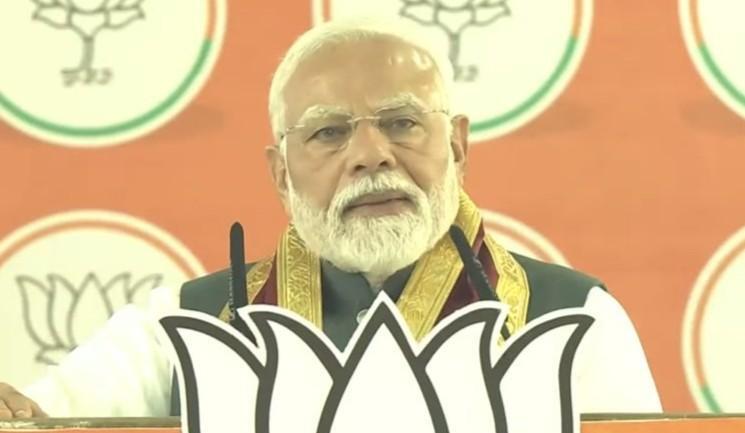
We Need to Make West Bengal a Hub of Knowledge Once Again: PM Modi
West Bengal, the land of Tagore, Vivekananda, and Rabindranath, has a rich cultural heritage and a long history of intellectual pursuits. The state has been a hub of knowledge and learning, with the likes of Nobel laureates like Amartya Sen and Subrahmanyan Chandrasekhar hailing from here. However, in recent times, the state has lost its sheen, and its intellectual capital has not been utilized to its full potential. Prime Minister Narendra Modi, during a recent rally in West Bengal, emphasized the need to revive the state’s intellectual and scientific prowess, making it a hub of knowledge and science once again.
In his address, PM Modi highlighted the importance of West Bengal’s development, stating that to achieve a ‘Viksit Bharat’ (developed India), it is crucial to make West Bengal ‘Viksit’ (developed) as well. He emphasized the need to infuse new energy into the state, urging the people to work together to revitalize the state’s intellectual and scientific landscape.
The state’s rich cultural heritage and intellectual tradition make it an ideal location for a knowledge hub. The Indian Institute of Science and Technology (IIT) in Kharagpur, the Indian Statistical Institute (ISI) in Kolkata, and the Bengal Engineering College (BEC) are just a few examples of the many institutions that have contributed significantly to the state’s intellectual capital. However, in recent years, the state’s focus has shifted more towards industry and commerce, with the government’s ‘Make in India’ initiative gaining momentum.
While ‘Make in India’ is a laudable initiative aimed at promoting domestic manufacturing and attracting foreign investment, it is essential to strike a balance between industry and academia. West Bengal’s intellectual capital is a valuable resource that needs to be leveraged to drive innovation and growth. By making the state a hub of knowledge and science, India can benefit from the state’s intellectual resources, drive innovation, and create new opportunities for growth and development.
So, what needs to be done to make West Bengal a hub of knowledge and science once again? First and foremost, the state government needs to invest in education and research infrastructure. This includes upgrading the existing institutions, setting up new ones, and providing adequate funding for research and development. Additionally, the government needs to create an enabling environment that encourages innovation and entrepreneurship, providing incentives and support to startups and small businesses.
Another crucial step is to promote interdisciplinary research and collaboration between academia, industry, and government. This can be achieved by setting up industry-academia partnerships, research parks, and innovation hubs that bring together experts from various fields to work on cutting-edge projects. The government can also provide funding for research grants, fellowships, and scholarships to attract top talent and encourage research and innovation.
The state government can also play a crucial role in promoting West Bengal as a hub of knowledge and science by creating a favorable business environment. This includes simplifying regulatory processes, providing tax incentives, and setting up special economic zones (SEZs) that attract foreign investment and create jobs.
Furthermore, the government needs to promote the state’s intellectual capital by celebrating its rich cultural heritage and intellectual traditions. This can be achieved by setting up museums, exhibitions, and cultural events that showcase the state’s intellectual achievements and promote its cultural heritage.
In conclusion, Prime Minister Narendra Modi’s call to make West Bengal a hub of knowledge and science once again is a timely and fitting reminder of the state’s intellectual and scientific potential. To achieve this, the state government needs to invest in education and research infrastructure, promote interdisciplinary research and collaboration, create a favorable business environment, and promote the state’s intellectual capital. By doing so, West Bengal can regain its status as a hub of knowledge and science, driving innovation, growth, and development in the region.






